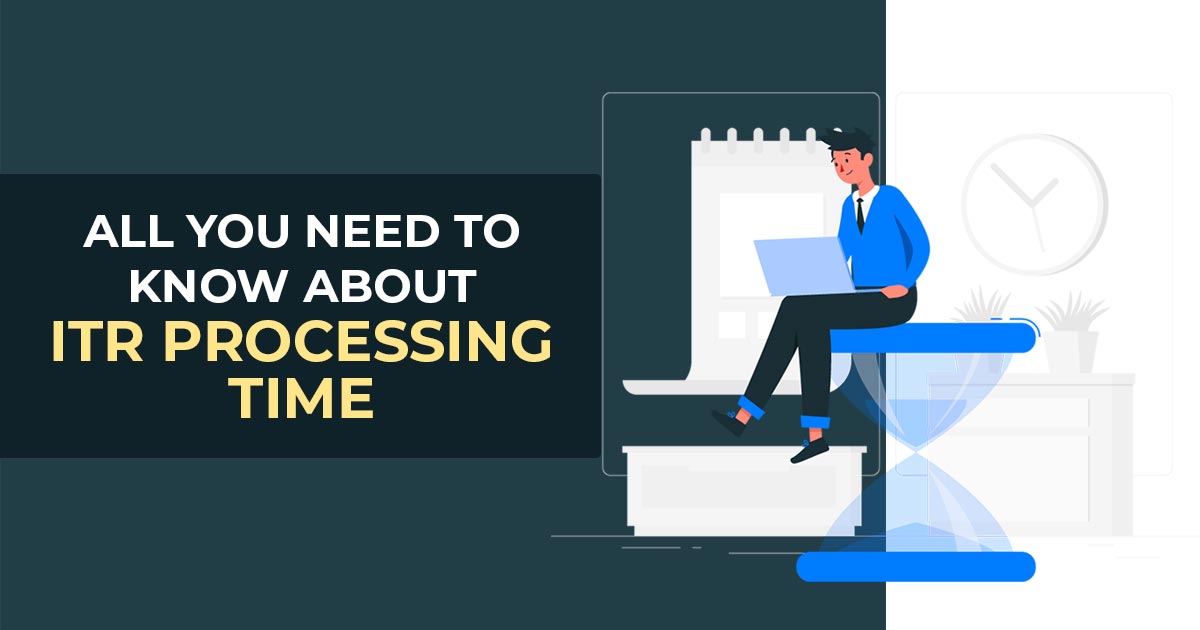
A straightforward approach to grasp the ITR processing time is available. Furthermore, we furnish an array of notifications dispatched upon the completion of successful processing via this article post.
The due date to file the ITR for the fiscal year 2023-24 (AY 2024-25) was 31st July. The income tax department has not yet processed many Income tax returns. Some social media users have also expressed anger with the prolonged processing periods. The income tax refund of the ITR filer won’t be credited to their bank account without a correctly completed ITR.
When May An ITR Possibly be Properly Processed?
According to tax experts, processing ITRs typically takes 15 to 45 days from the date of e-verification of the ITR. The time restrictions are extended for individuals employing the offline verification technique (ITR-V form).
After processing the ITR, it gets intimated to the person through the method of providing the intimation under Section 143(1) of the IT Act, 1961. No intimation under section 143(1) could be provided post expiry of 9 months from the end of the fiscal year where the income return is filed, furnished by the income tax. Therefore, the intimation notice will come on or before December 31, 2025, for the ITR provided for FY 2023-24 (AY 2024-25).
Therefore, the ITR that was filed must be processed within nine months after the end of the fiscal year in which it was filed. The tax department must mark the filed ITR for additional scrutiny if it is not completed within this time frame, among other requirements. The ITR can’t be unprocessed after being filed or left hanging.
What Takes Place When the ITR is Not Processed Even After a Long Time
The person can file a complaint on the grievance tab of the income tax on the 2.0 portal if the taxpayer’s ITR is left unprocessed despite waiting for a long time. Indeed, via the helpline numbers, the assessee can reach out to the central processing centre (CPC).
Why Does ITR Processing Consume a Long Time?
Various reasons exist why the ITR takes lots of time to get processed. The complexity of the ITR, the ITR form selected, the amount of claims in the form of deductions/exemptions, whether such deductions/exemptions are already covered in Form 16, etc., are the factors on which the ITR processing time depends.
One of the primary reasons for delays in the processing of Income Tax Returns (ITR) is the specific ITR form that is utilised.
According to Amit Gupta, a chartered accountant and Managing Director of SAG Infotech, a company specialising in tax software solutions, “The processing times for various ITR forms can differ significantly. Simpler forms like ITR-1, designed for individuals with clear income sources, manage to undergo quicker processing compared to more intricate forms like ITR-3, which caters to individuals and Hindu Undivided Families (HUFs) with business or professional income.
The underlying cause of these differences is that ITR forms containing more complex financial information, such as business income or capital gains, often necessitate more rigorous verification by income tax authorities. Consequently, this can lead to extended processing durations for such ITR forms.”
Read also: Center May Cut 6 Days in Processing Time of Income Tax Refunds
What kinds of notifications are issued after the successful processing of an Income Tax Return (ITR)?
Upon the completion of the ITR processing, the income tax department issues an intimation notice in accordance with Section 143(1). An intimation notice may pertain to any of the subsequent scenarios:
- Income Tax Demand: At the time of processing the ITR, the CPC verifies the data furnished in the ITR about the records as available with the income tax department (such as Form 26AS/ Annual Information Summary/ Tax Information Summary, SFT details, etc) An intimation containing a tax demand is typically sent to the assessee when the records of the revenue do not align with the taxpayer’s filed ITR. Consequently, this leads to the calculation of an additional tax liability. Additionally, adjustments may be made for arithmetic errors, incorrect claims, the disallowance of losses, or specific deductions in the case of belated returns. Under section 143(1), the demand notice is to be resolved after the above-specified adjustments.
- Tax Refund Due: On the other hand, an intimation accompanied by a tax refund is issued when no discrepancies are detected in the taxpayer’s submitted ITR. However, if discrepancies are identified by the income tax department, a tax refund will be issued accordingly.
- No Tax Demand and No Refund: Such notification is given when a person is neither needed to make a tax payment nor qualifies for a refund. where the income tax department approves the ITR without making any further changes or where any such modifications have no influence on the increased tax burden, the individual often receives such notification.
What Was the Statement Made by the IT Department Regarding the Processing Times of Income Tax Returns (ITRs)?
On September 5, 2023, the income tax department announced that they are continually enhancing its efforts to deliver efficient and swift services to taxpayers. As part of these efforts, they have significantly reduced the average processing time for ITRs (after verification) to 10 days for Returns filed for the Assessment Year (AY) 2023-24 (Fiscal Year 2022-23). This represents a substantial improvement compared to the previous processing times of 82 days for AY 2019-20 (FY 2018-19) and 16 days for AY 2022-23 (FY 2021-22).
The income tax department also revealed that as of September 5, 2023, a total of 6.98 crore ITRs for AY 2023-24 were submitted on the e-filing ITR portal. Among these, 6.84 crore ITRs had undergone verification. Furthermore, the income tax department disclosed that they had successfully processed more than 6 crore ITRs out of the total verified submissions.